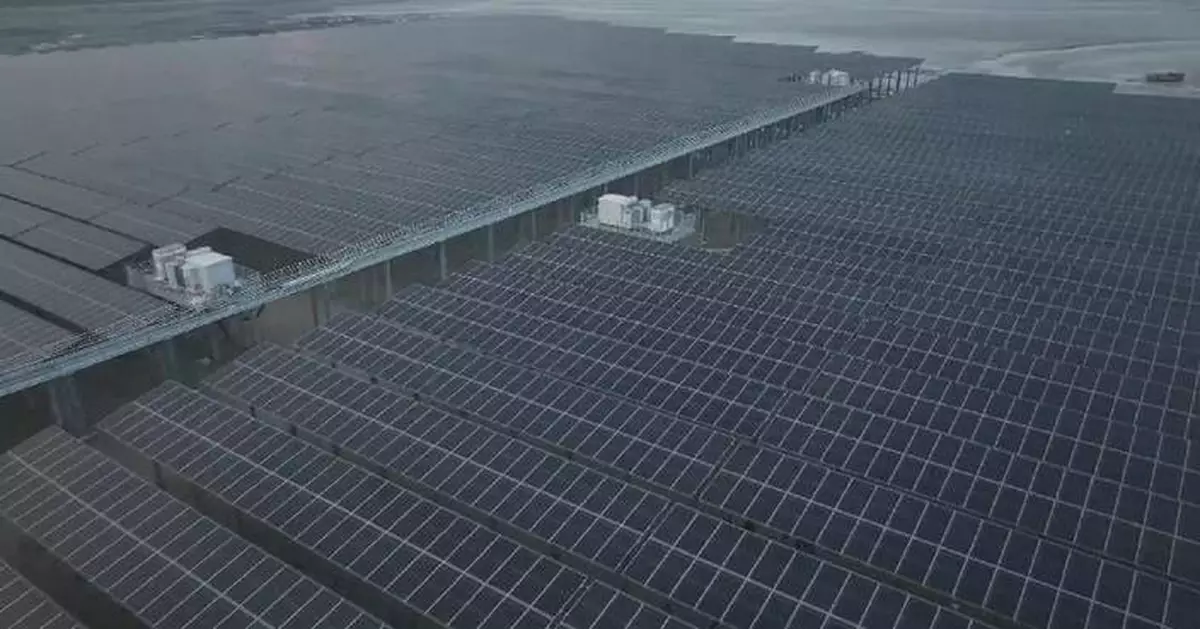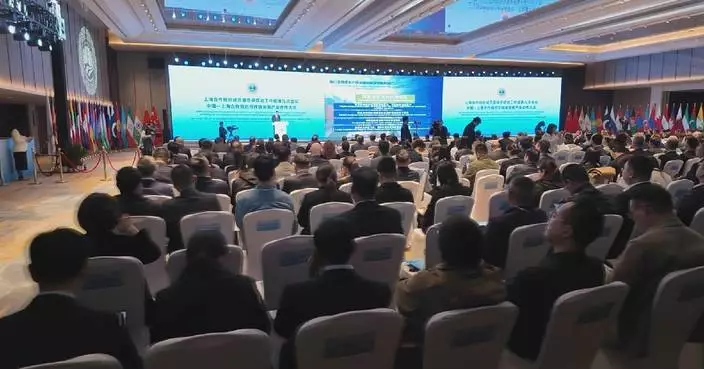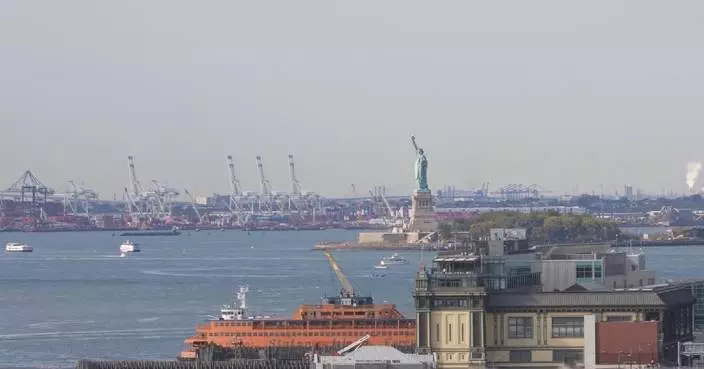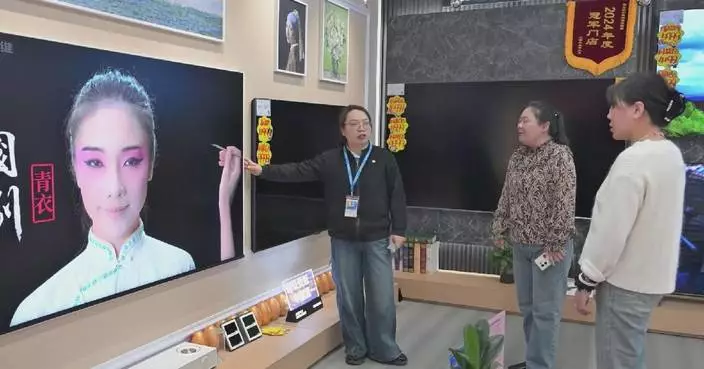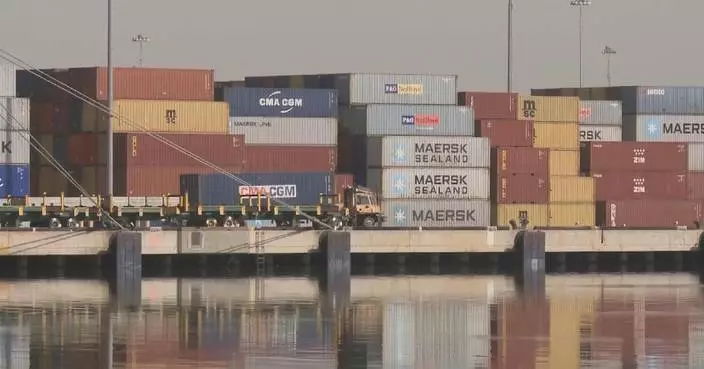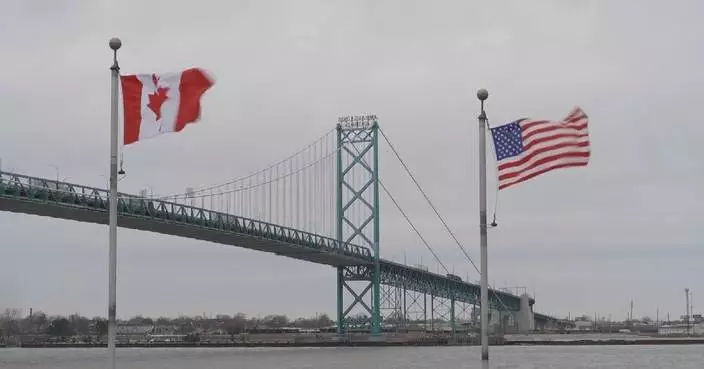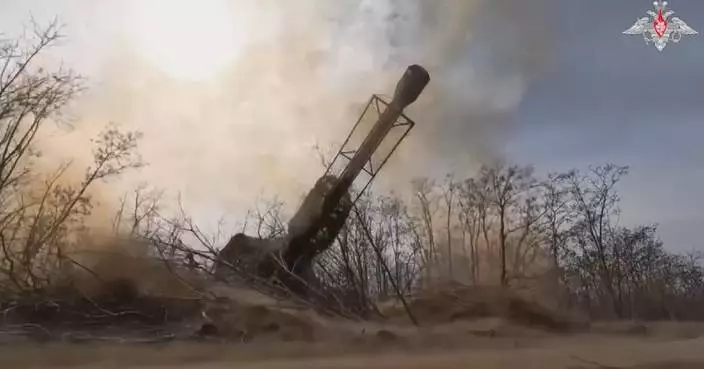China's largest integrated photovoltaic(PV)-hydrogen-storage project located in Jiangsu Province was connected to the grid and begun power generation from Tuesday, said state-owned energy firm CHN Energy Friday.
Located on the coastal tidal flats of the Yudong Reclamation Area in Rudong County, it is China's first integrated offshore facility combining PV power generation, hydrogen production and refueling, and energy storage, all within a framework of comprehensive energy utilization and coastal ecological restoration.
The 400-megawatt project, spanning 4,300 mu (around 286.67 hectares), incorporates a newly constructed 220 kV onshore booster station, a 60 MW/120 MWh energy storage facility, and a hydrogen production and refueling station with a capacity of 1,500 cubic meters per hour and 500 kilograms per day, respectively.
Part of China's third batch of Desert, Gobi and Rocky Areas Mega Wind and Solar Base Projects, the Rudong facility is expected to generate around 468 million kilowatt-hours of electricity annually.
The project is expected to deliver significant environmental benefits, including an annual reduction of approximately 309,400 tons of carbon dioxide emissions, 562.6 tons of sulfur dioxide emissions, and 1,125.3 tons of nitrogen dioxide emissions.
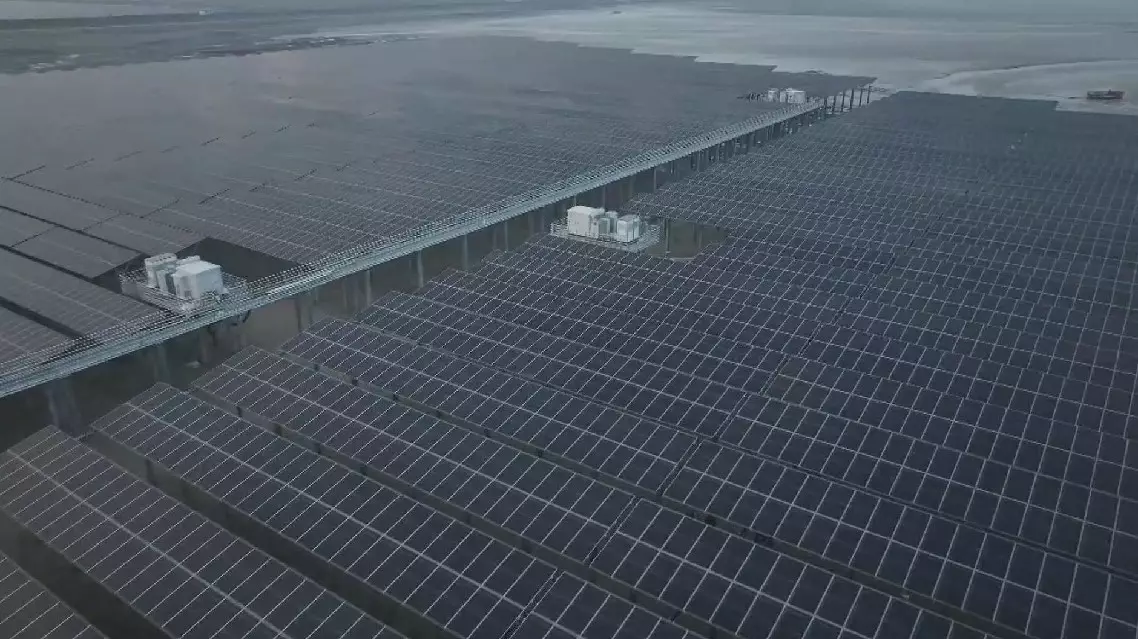
China's largest integrated PV-hydrogen-storage project begins power generation
As the uncertainty surrounding the Trump administration's tariff policies fuels inflationary fears in the United States, a number of consumers have resorted to panic buying amid growing concerns that costs could shoot up.
With price hikes expected on goods such as automobiles, beauty products, and even on everyday food items, many residents say they have been rushing out to stock up before prices climb even further.
In recent street interviews with the China Global Television Network (CGTN), New York residents shared how the impact of the ongoing tariff war is affecting their daily lives.
"Actually, I already have. I've already started stocking up. My mother has a whole stockpile, and she's panicking. But I told her we're going to be okay, as we live in New York City," said Amelia Guilford, a retail worker who was visiting her mother in the city.
With many anticipating a rise in inflation, many Americans are concerned about the long-term financial impact, and say they are now being more prudent with their money.
"I think we have to [spend more carefully]. Because otherwise you're going to be in real trouble economically or in debt, because if you spend more than what you get, that's going to be a lot of trouble," said Jose Pena, a janitor.
The tariffs, which directly affect the price of imported goods, have led to predictions of significant price increases, particularly on goods coming from China, which has been the biggest target of the tariffs.
"[Products] from China are going to be more expensive. I cannot exactly name what kind of products one by one, but every one that comes from China is going to be more expensive, without a doubt," said Pena.
Public frustration is evident, with some questioning the logic behind U.S. President Donald Trump's risky and unpredictable pursuit of tariffs on other countries, as the debate over the long-term consequences of the policy intensifies.
"I think he's just making enemies, and I trust him not. And I think he's making a mess of everything. I think it's all going to come around and flip back. The changes he's doing are completely unsustainable," said Lois Adams, a nurse, as she expressed her disapproval of Trump's approach.
Ordinary Americans are facing up to the harsh reality of rising prices and remain anxious about the future economic impact of the continuing trade war.
Jerome Wilkins, a security worker, voiced concerns about the broader societal implications of the tariffs, warning it will again be the poorest people who suffer the most.
"I think that the tariffs are horrible. I think that it's like privatizing America, and instead of America being a country for the people, it's a corporation for the rich. And it's just for them to get richer, while the poor get poorer. And that's basically how I feel," said Wilkins.
Meanwhile, the Chinese government announced it would raise tariffs on all imported U.S. goods from 34 percent to 84 percent, effective Wednesday, in response to the U.S. decision to escalate its "reciprocal tariffs" on Chinese products, further adding to the economic strain.
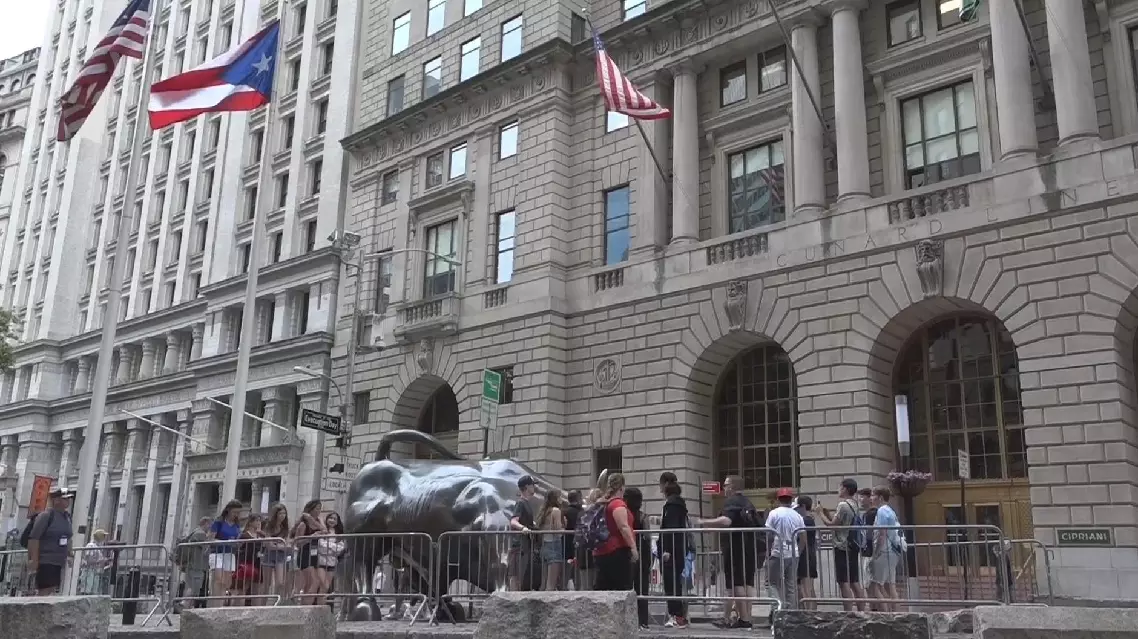
Tariff war triggers panic buying in US, raising public concerns over rising costs



